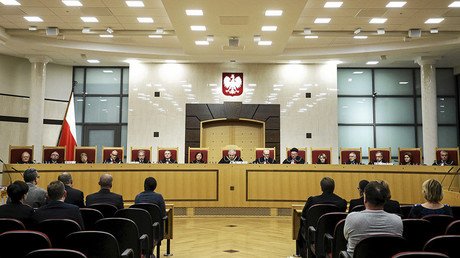Poland enacts 'crippling' constitutional court law despite EU indignation

Polish President Andrzej Duda has signed into law a controversial amendment to the legislation of the constitutional court, a step opponents say could paralyze Poland's top judicial body and encroach on the separation of powers.
The bill was drafted by the ruling Law and Justice (PiS) party, of which Duda is a close ally. The president is to make a public statement on the issue later on Monday.
The amendment requires the 15-member constitutional court to pass most of its rulings with two-thirds of votes rather than the current simple majority, and sets a minimal quorum at 13 judges, as opposed to the nine needed previously.
Under the new ruling, the body would find it difficult to rule on controversial issues, say critics, allowing the majority in the legislature much more leverage in running the country.
The amendment also introduces an obligatory three-month waiting period between a request to the court and the passing of a verdict, preventing judges from acting swiftly in an emergency.
In addition to rushing the amendment through parliament, the PiS also rejected five candidatures for constitutional court judges chosen by the previous government of the liberal Civic Platform (PO) party. The new conservative authorities said the appointments were biased and have chosen five judges of their own.
The apparent encroachment on the separation of powers by the PiS triggered mass protests in Poland, as some 20,000 protesters marched across more than 20 cities. The demonstrators said the amendment amounted to an attack on democracy and pledged to protect the constitutional court.
Opposition to the controversial legislation also came from other EU members. Last month EU Parliament chief Martin Schulz compared the developments in Poland to a "coup d'etat." Warsaw demanded an apology for what it deemed “unfounded, unjustified” comments.
Luxembourg's Foreign Minister Jean Asselborn told Reuters the situation in Poland is “reminiscent of the course taken by dictatorial regimes." Luxembourg currently holds the rotating presidency of the EU.













